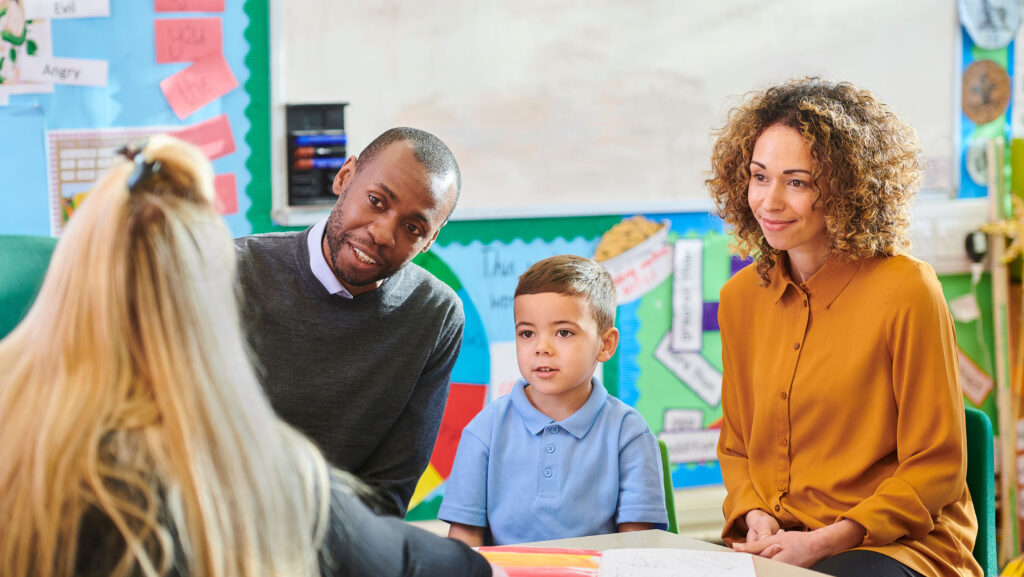Building a Strong Partnership
For many busy moms, the back-to-school season brings a mix of excitement and anxiety. Juggling work, household responsibilities, and children’s school needs can feel overwhelming. Your mornings might start with a chaotic rush to get everyone ready, leaving you exhausted before the day even begins. You worry about missing important moments in your child’s life and feel the pressure to stay on top of their academic progress. Does this sound familiar?
It’s a lot to handle, and you’re not alone in feeling this way. Children, too, face their own set of challenges. Adjusting to new routines, teachers, and classmates can be daunting. They may feel nervous about keeping up with schoolwork or fitting in socially. As a parent, you want to support them through these transitions, but it can be hard to know where to start.
And doing nothing certainly doesn’t reduce the impact these challenges bring to your family’s daily life and your child’s overall educational experience. Stressful mornings can affect your child’s focus and attitude at school, leading to a strained family atmosphere. However, effective communication between parents and teachers can bridge this gap, ensuring your child receives the support they need both at school and at home to navigate the school year successfully.
Effective Communication Matters
Good parent-teacher communication creates a supportive learning environment for your child. It allows teachers to understand your child’s unique needs and enables you to stay informed about their progress. This collaborative approach helps address any issues early on, preventing small problems from becoming major obstacles. As a result, your child feels more supported and confident, which positively impacts their academic performance and overall well-being. Additionally, clear and consistent communication can alleviate your worries, reducing stress and creating a more harmonious home life.


Tips to Strengthen the Parent-Teacher Relationship
1. Start the Year on the Right Foot: Attend back-to-school nights or orientation sessions. Introduce yourself to your child’s teacher and share any pertinent information about your child’s needs, interests, and challenges. This initial contact sets a positive tone for the rest of the year.
2. Regular Check-Ins: Don’t wait for parent-teacher conferences to discuss your child’s progress. Set up regular check-ins, whether through emails, phone calls, or in-person meetings. This keeps you informed and shows the teacher your commitment to your child’s education.
3. Be Proactive and Positive: If you have concerns, address them early and positively. Approach the teacher with an open mind about the steps everyone should be taking for your child’s growth. If you have concerns, address them promptly rather than letting issues escalate
4. Stay Informed and Involved: Participate in school events, volunteer in the classroom if possible, and stay up-to-date with school newsletters. Your involvement demonstrates to your child the importance of education and fosters a sense of community.
5. Support Learning at Home: Reinforce what your child is learning in school by providing resources and activities at home. Encourage reading, help with homework, and engage in educational activities that complement their curriculum.
Insights from a Teacher: Enhancing Parent-Teacher Communication
We spoke with an experienced teacher who shared some practical tips for parents:
How can parents approach difficult conversations with teachers about their child’s progress or behavior?
Approach these conversations with empathy and a willingness to listen. Start by expressing your concerns calmly and asking for the teacher’s perspective. Aim to work together to find a solution rather than placing blame. Remember, the goal is to support your child’s growth and development. Additionally, come to the conversation with an open mind about the steps everyone should take for your child’s growth. If you have concerns, address them promptly rather than letting issues escalate. Early communication helps ensure you and the teacher can address challenges effectively and collaboratively.
What information or updates do you find most helpful to receive from parents, and how often should these be communicated?
Regular updates about significant changes at home—like a move, family illness, or changes in routine—are essential because they can affect your child’s behavior and performance at school. For instance, if your child had a rough night of sleep or missed breakfast, a quick message to let us know can provide important context for any unusual behavior or difficulties they might experience at school. One teacher mentioned that knowing about these small details—such as a late night or a missed meal—can greatly help them understand and support your child’s needs. Consistent communication, even if brief, helps everyone stay on the same page and work together to support your child’s growth and well-being.
How can parents ensure they are effectively supporting their child’s education at home in alignment with classroom goals?
Ask questions. To effectively support your child’s education at home and align with classroom goals, ask the teacher for an overview of the curriculum and specific goals for the year. This helps you understand what your child is learning and how you can reinforce these concepts at home. Simple activities like reading together, practicing math skills, or discussing what they learned in school can make a big difference.
For instance, one teacher suggested that parents should inquire if there are any materials or activities they can work on at home. Reading to your child or having them read to you every night, even if it’s just a page, is incredibly beneficial. Additionally, she mentioned that there are many educational games aligned with the school curriculum. If you’re unsure which games would be most effective, ask your child’s teacher for suggestions on games they use in the classroom that could also be engaging and helpful at home. This proactive approach ensures you’re reinforcing classroom learning and supporting your child’s educational growth.
What are some common communication mistakes parents make, and how can they avoid them to foster a better relationship with teachers?
One common mistake parents make is only reaching out to teachers when there’s a problem. Instead, try to share positive updates and celebrate achievements as well. This helps build a balanced and supportive relationship. Additionally, don’t wait until small concerns become big problems. Address issues early and work collaboratively with the teacher to find solutions.
Maintaining a positive relationship with your child’s teacher can be highly rewarding for everyone involved. Always speak positively about the teacher in front of your child to foster their respect and trust. Avoid jumping to conclusions or airing grievances on social media. If you have concerns, it’s best to address them directly with the teacher by setting up a meeting. This proactive approach ensures that issues are resolved effectively and strengthens the partnership between home and school. Remember, it’s perfectly okay to reach out to the teacher anytime you have concerns—waiting until problems escalate can impact your child’s progress.
By taking these steps and maintaining open, proactive communication with your child’s teacher, you can create a supportive and enriching educational experience for your child. This not only helps your child succeed academically but also reduces stress and enhances the overall harmony in your family life. Remember, you’re not alone in this journey. Partnering with your child’s teacher can make the back-to-school transition smoother and more successful for everyone.
Submitted by Sarah Clark
